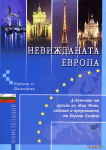
Farmers around the world are being pressured by half a dozen giant corporations to grow genetically engineered crops. What are the possible downsides for them, particularly for those hundreds of millions of farmers living in developing countries? On their environment? On their health? On their independence? On their traditional export crops? On their access to the marketplaces of their own countries? This important book comes out of a dialogue between farmers’ representatives and experts.
Available in English: “Brave New Seeds” ; Zed Books Publishers

















